Overview of the rule
THE RATING RULE
Management of the rule is provided by a Chief Measurer and Chief Technical Officer currently a role held by Bastien Pouthier along with a team of measurers located throughout the Caribbean region.
The intent of this Association is to handicap fairly the broad variety of monohull, multihull and classic yachts which race within the Caribbean region.
Four Rules are currently being managed.
- The Main Monohull Rule deals with racing yachts, both cruisers or purely racers, with a competitive edge.
- The Multihull Rule deals with multihulls, cruisers or racers, foils (straight, C, L or T) or not.
- The Classic Rule deals with traditionally built and rigged monohulls.
- The Simplified Rule deals with yachts who want to take part in an event without the hassle of a full measurement and without the competitive edge. A variable rating system has been developed to use with the Simplified Rule.
Each Rule will compute a Rating (time correction factor) for each yacht which is intended to be representative of its true speed potential.
In order to establish a rating for each boat, a rating system and review process is in place. Each year at the end of the regatta season the measurers meet to discuss performance of the rule throughout the season and talk about issues, anomalies and proposals for improvements to the rule. Each year those improvements and changes are then agreed upon and the work done by a programmer who is employed as needed to do the necessary work on the database calculation.
THE MEASURERS ROLE
The measurers input into this process is on a voluntary basis.
Any regatta, who must be a member of the CSA, using the CSA Rule may, in consultation with the CSA Chief Measurer, appoint and bear the cost of a CSA Measurer as Regatta Measurer (RM) whose duties shall include:
- a) Advise the Organising Authority and Race Committee on class assignment.
- b) Review ratings of all entered boats and notify the owner, organisers and the Protest Committee of any errors found.
- c) Be the “authority responsible” referred to in RRS 64.3 and perform any services required under that RRS from such an authority, provided that the CM has issued the necessary permission for the Regatta Measurer to perform this role.
- d) Correct errors found as permitted under the CSA Rule and as agreed by the Race, Protest or Technical Committees.
- e) Prepare and submit a detailed Measurer’s Report on the regatta.
- f) Any other duties requested by the Organisers that are appropriate to be done by a Regatta Measurer.
The cost of the measurer to the Organizing Authority is to provide for accommodation, travel costs and daily subsistence costs.
BOAT MEASUREMENT & PRODUCING A RATING
The Classic and Simplified Rules are self-declared rules and therefore the boat owner or his representative must provide the required details to the measurer.
The main and multihull rules are an in the water measurement rule which must be completed by an approved measurer. This measurer can be one of the many measurers around the region or the regatta measurer. The boat details and measurements are then input into the database and a program runs a thorough a long list of logic and formulaes to issue a Time Correction Factor or tcf. The measurer, Chief Technical Officer and Chief Measurer then review the measurements and issue a certificate once payments to both measurer and the CSA have been confirmed. It takes experience as a measurer and racer to understand the details of the measurement system.
The fees received by the measurer are to cover his/her time in completing the necessary tasks. The fees paid to the CSA directly are used to pay for programming and server fees to ensure the database is functional along with costs necessary to support measurers meetings and also promotion of the rule and the CSA.
Membership fees create a small amount of revenue for the CSA overall which along with boat measurement fees allow the organization to sustain the rule as well as support sailing development around the region.
Get a CSA Rating
CSA RATING RULES
The CSA has four rules in use: the CSA Main Rule (Monohull), the CSA Multihull Rule, the CSA Simplified Rule and the CSA Classic Rule .
The MAIN RULE
The CSA Main Rule requires an “in the water” measurement. All measurements used can be taken while the boat is afloat.
To get a rating:
- Use the link fill in the form to request a measurement and pay: Please click here
- A measurer will be in touch to arrange a date, time and location to be measured.
- The CSA measurer will advise on preparing the yacht to be measured, measure the yacht and issue a rating certificate.
- If you have had a partial measurement: you may owe an additional fee. The measurer will advise you if so. Once paid, a new rating certificate will be issued.
PREPARING A YACHT FOR MEASUREMENT
While some light, racy yachts are measured empty, most yachts are measured in racing trim – that is with the minimal gear, fuel and water it normally races with (as light as it may be at any point in time while racing) – but without the crew. (Refer to your CSA measurer for details.)
The owner is responsible for presenting his yacht for measurement in a condition described above and in a location where the water is sufficiently calm to ensure an accurate measurement (a location at a dock with space around it is normally preferable). The Owner (or his agent) must have a dinghy available and be in attendance to assist as necessary.
Check out the Full Measurers Guide for the Main Rule for information on how to prepare your yacht.
Check out the Monohull_Measurers_Guide_2025 for the Multihull Rule for information on how to prepare your yacht.
SAILS
The Owner must make available all sails requiring measurement – or provide appropriate certified data for these sails (from a reputable sailmaker or another internationally recognized measurer). These include the largest headsail, the largest asymmetric spinnaker and the largest symmetric spinnaker to be used while racing. If the owner wishes to race with two headsails downwind he must also present this second headsail for measurement. A smaller headsail can also be measured for use in the alternative headsail rating the CSA Rating Rule offers.
If the headsail attached to the roller-furler does not have a sailmaker’s certificate, it must be taken down before the measurer arrives.
The owner must be aware that he cannot race with any larger sails than those declared.
Receiving these measurements in advance will save time on measurement day. Otherwise, sails will have to be physically measured. Your sailmaker can do this for you in his or her loft or may be able to provide the information. Measurements required are as follows:
Mainsail – 25% girth; 50% girth; 75% girth; 87.5% girth; top headboard width.
Genoa – Luff length LP; 25% girth; 50% girth; 75% girth; 87.5% girth.
Spinnaker – luff length; leech length; foot length; mid girth.
Dimensions for the largest sails are required.
Information Required
The following information should be readily available for the measurer:
- Owner’s Name, Address, Email and Phone number
- Captain’s Name, Address, Email and Phone number
- Sail Numbers
- Model, Design, Class or Type
- Year of First Launch
- Maximum Draft – from ship’s plans or other recognized data sheet
- Minimum Draft – for a lifting keel/centreboard
- Drawing or photo showing underwater profile of yacht
- Propeller type, Number of blades, With/Without Strut, Retractable, etc.
- Materials used in Construction of Hull, Keel and Rudder
- Materials used and Cut Pattern of Sails
List of Measurers
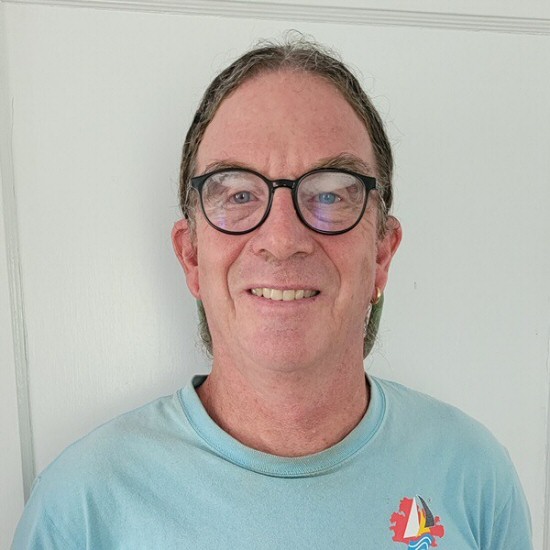
David Walworth - St. Croix/US Virgin Islands
Chief Measurer
T: +1 (340) 227-1220
David and his wife Dr. Michelle Peterson moved to St. Croix US Virgin Islands, in January 1997. He has a master’s degree in Naval Architecture from MIT. In May 2000 he started his yacht design business, Walworth Yacht Designs P.C. He has been involved with the Caribbean Sailing Association as a measurer since 2014.
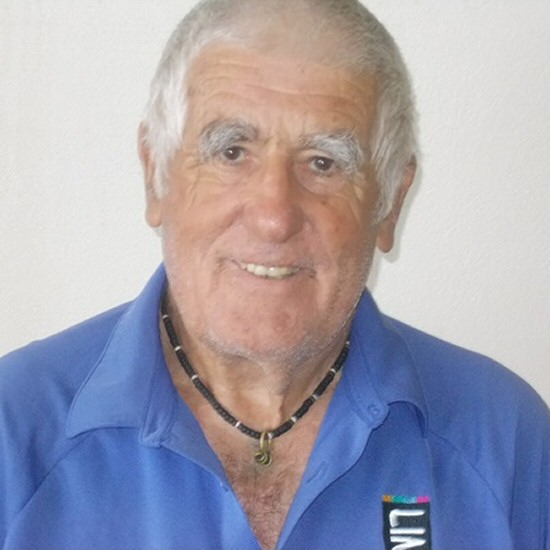
Sandy Mair - Antigua
Measurer
T: +1 268-464-1097 (cell), +1 268-460-1799 (fax)
Sandy Mair began racing dinghies in Scotland at the age of 10 in 1954. He transitioned to yachts when he moved to the Caribbean in 1968 after completing a transatlantic crossing. In 1983, he permanently settled in the islands and has been living there ever since. Sandy has been an avid racer for many years, initially owning the Soverel 30 Streaker for 26 years and now campaigning his current yacht, the Beneteau First 35 Cricket, regularly in island regattas. He is well-known as both a competitor and a CSA measurer.
Sandy is a civil engineer by profession, known for his arithmetical mind. He was appointed as a CSA measurer by Dick Stoute in St. Lucia in 1987 and has continued in that role since moving to Antigua the same year. He has now served in that capacity for 37 years and, although still a busy measurer, is nearing the end of his tenure.

Tristain King (TK) - Barbados
Measurer
T:+1 (246) 233-1574
Bio Here please
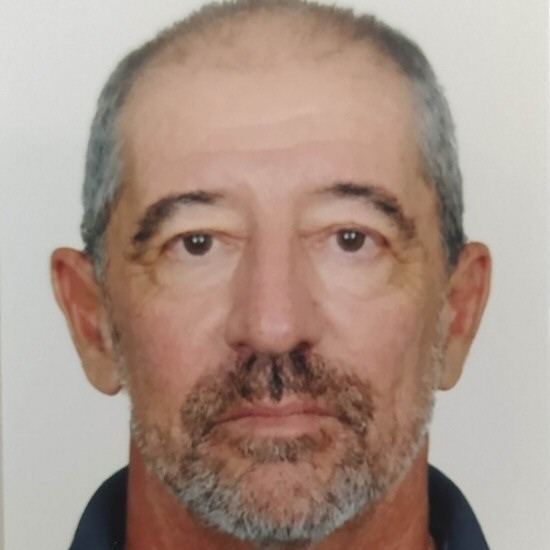
Andrea Scarabelli - St. Maarten
Measurer
T: +1 721 580-6641
Andrea landed in St. Maarten 20 years ago with an extensive background of inshore, offshore, and Ocean racing. Andrea does consulting, and project managing and he has been an agent for North Sails—measurer for the CSA rule since 2015.

Iain Mobbs - St. Maarten
Measurer
T: +1 721 524-1642

Bastien Pouthier - Trinidad & Tobago
Measurer
T: +1 868-762-1911 (cell), T: +1 868-364-3274 (WhatsApp)
Bio Here please
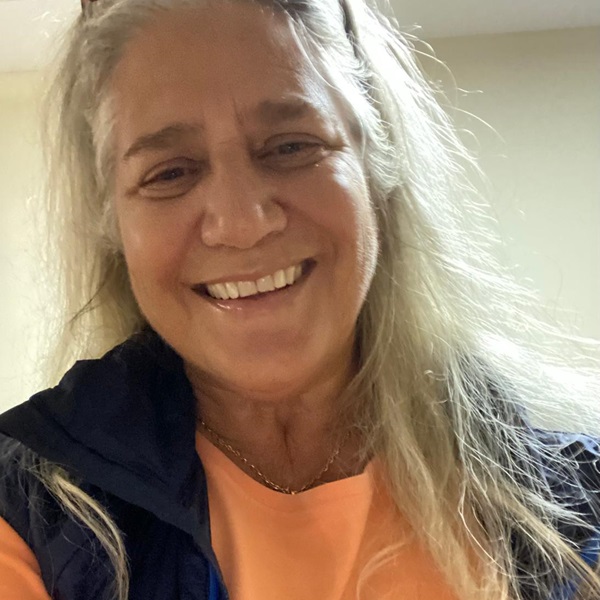
Renata Goodridge - Barbados
Measurer
T: +1 246-417-4726 (work),+1 246-233-2170 (cell)
Renata started sailing about the age of 7, and then racing with her Dad on the Soling on Lake Ontario around the age of 13. She raced with other crews and boats as well, learning the machinations of boats in fresh water. After teaching sail training for several summers up North, she moved to Barbados in 1987 and trained as a marine scientist, both in situ underwater at the Bellairs Research Institute and at UWI, attaining a Masters degree in Marine Resources & Environmental Management in 1997. This has kept her in, on and under our beautiful Caribbean waters ever since.
Renata started racing out of the Barbados Yacht Club in 1988, learning tons from the amazing skippers and boats she was honored to race with (Jackie Hoad – Blazin, Andrew Burke – Countdown, Shane Atwell – Ninja, and Paul Johnson – Sumtin’s Happnin).
Renata became the official CSA Barbados Measurer in 2006, after training under Dick Stoute and Jeffrey Chen for two years.
Renata is a sustainable maker, baker and beekeeper, as well as the Caribbean Ambassador for Sailors for the Sea, helping to maintain Clean Regattas and Events throughout the Caribbean islands.
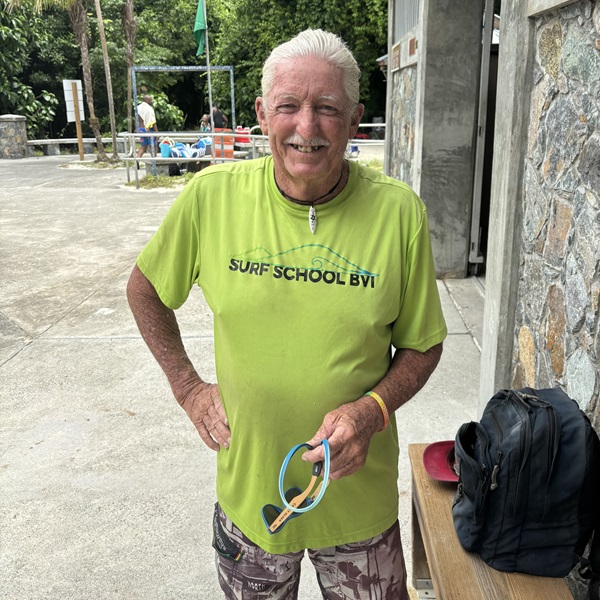
Tom Merrigan - British Virgin Islands
Measurer
T: +1 284-342-3003 (mobile)
Tom grew up in Central Florida surrounded by inland lakes and east coast Atlantic Ocean. Graduated US Merchant Marine Academy in Kings Point, NY in 1973 with Bachelor Degree in Marine Engineering & Transportation. He sailed and raced all 4 years in maritime college including the 1972 Bermuda race on school’s racing yacht. Sailed on USCG Mate/Master and Engineer’s licenses from 1973 to 1988 including many yacht deliveries between North America and Caribbean. He purchased a small home on Tortola, BVI in 1980 while a crewed yacht skipper at the Moorings, employed as a marine surveyor with RW Hirst & Co. from 1988 to 1995. Attended law school in London, England from 1995 to 1997, then 1 year as legal assistant at Harney’s. Admitted to the BVI Bar in October 1998. Practiced Admiralty law at Maritime Chambers from 1999 to 2017 when I retired. I’ve been CSA measuring racing yachts since 2002.

Edwin Versteeg - Curacao
Measurer
T: +5999 5628007 / 5148948
Bio Here please

James Benoit - Grenada
Measurer
T: +1 473-440-2346 (work), +1 473-444-3381 (home), +1 473-405-1345 (cell)
Bio Here please

Rafael Martinez - Puerto Rico
Measurer
T: + 787 510 4817
Rafael “Rafi” Martinez was born and raised in San Juan, Puerto Rico. In the mid 80’s, Rafi started sailing on their family’s Beneteau First 38 and shortly thereafter started racing in many of the Caribbean regattas, including the prestigious Caribbean Ocean Racing Triangle (CORT).
Rafi honed his sailing at the Club Nautico de San Juan Sailing Program and every summer while cruising the USVI and BVI in the family’s sailboat. He attended Tufts University in Massachusetts where he competed in numerous sailing events in the New England and east coast area. After graduating from college, Rafi returned to Puerto Rico to study law and continue sailing and racing in the Caribbean circuit.
Rafi has extensive sailing and competition experience in several dinghy classes, as well as, racing and cruising keelboats. In 2015, under the tutelage of David Waltworth, Rafi started as a CSA measurer.

Frederic Sweeney - St. Lucia
Measurer
T: + 758 489 8914
Bio Here please

Gregory Loe - Trinidad & Tobago
Measurer
T: +1 868-680-3605 (cell)
Bio Here please
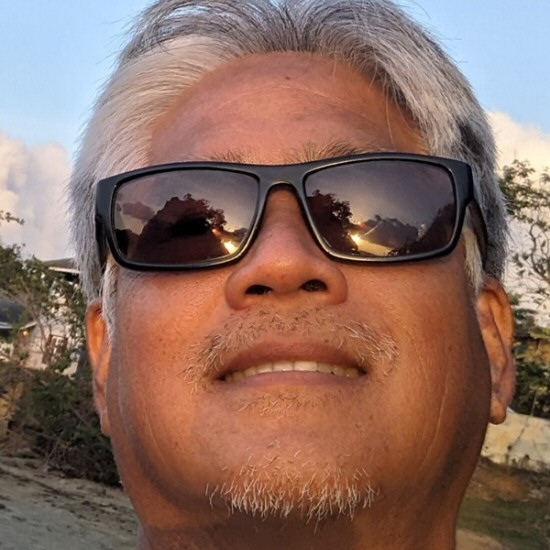
Jeffrey Chen - Trinidad & Tobago
Measurer
T: +1 868-355-1431 (cell), +1 868-355-1431 (WhatsApp)
Jeffrey is a passionate Trinidadian racing sailor and the owner of Melges 24 ‘Wasabi,’ which is based out of the Trinidad and Tobago Yachting Association in Chaguaramas. He has been a CSA Measurer since 1996 and served as Chief Measurer from 2001 to 2012.
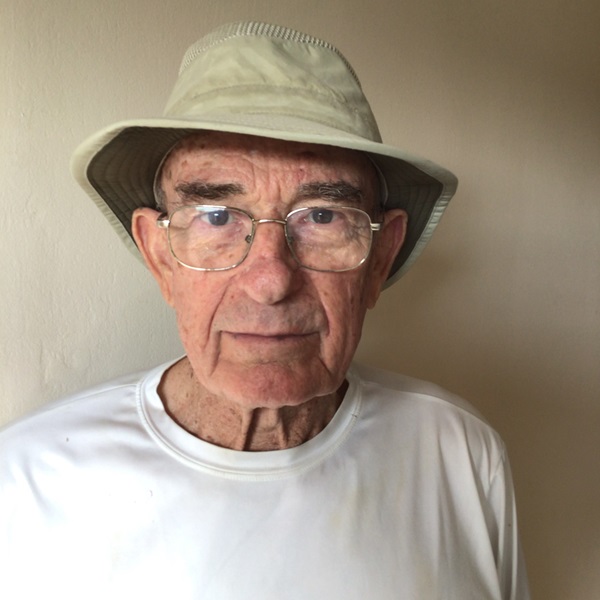
Tony Maidment - Antigua
Measurer
T: +1 268-463-0260 (home), +1 268-773-5598 (cell), +1 268-460-1799 (fax), +447572192080 (WhatsApp)
Tony has been a professional sailor, racing and sailing in the Eastern Caribbean, including Turks and Caicos Islands and the Bahamas, since 1968. He has also sailed extensively on the East coast of the USA and in the Mediterranean, as far east as Croatia, probably including some 100 ocean passages. Tony has been a CSA Measurer for over a decade.
Bio Here please
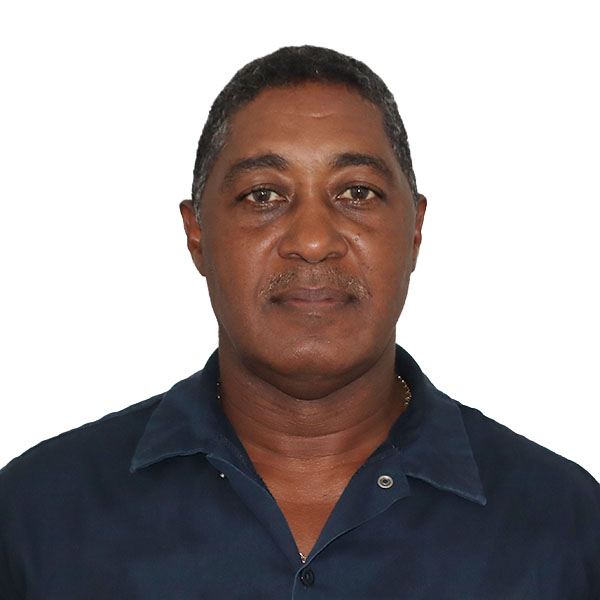
John Gaillard - Antigua
Junior Measurer
Bio Here please
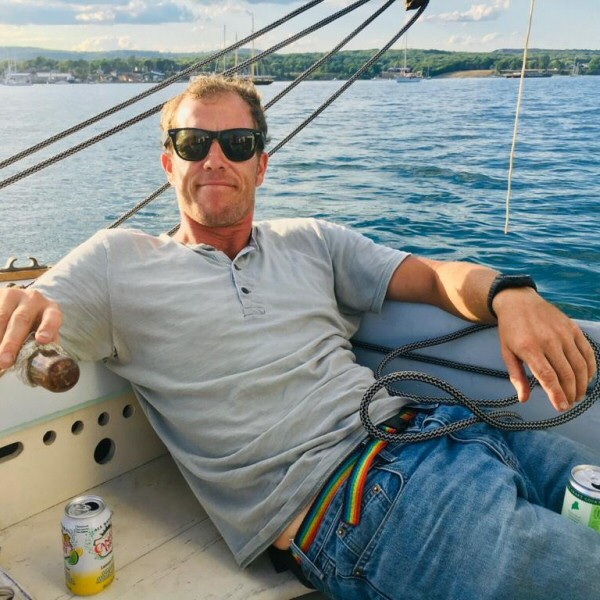
Sam Masterman - Antigua
Junior Measurer
T: +1 268-779-6997 (cell), T: +1 207-390-1112 (cell)
Bio Here please
Measurers' Fees
Each year in order to race, a boat must have an up to date rating certificate issued. Costs are as listed below and to be paid by the boat to the CSA and/or the measurer:
MAIN MONOHULL RULE
- Full measurement (valid 5 years) Main Rule Certificate:
3 US$ per foot for CSA and 5 US$ for measurer. - Following annual renewal Main Rule Certificate (no changes):
3 US$ per foot for CSA and 1 US$ per foot for measurer. - Following annual renewal Main Rule Certificate (minor changes):
3 US$ per foot for CSA and measurer’s hourly rate.
MULTIHULL RULE
- Full measurement (valid 5 years) Multihull Rule Certificate:
2 US$ per foot for CSA and 5 US$ per foot for measurer. - Following annual renewal Multihull Rule Certificate (no changes):
2 US$ per foot for CSA and 1 US$ per foot for measurer. - Following annual renewal Multihull Rule Certificate (minor changes):
2 US$ per foot for CSA and measurer’s hourly rate.
CLASSIFIED & SIMPLIFIED RATING RULE
- 1 US$ per foot for CSA and 1 US$ per foot for measurer.
How is the revenue used?
The fees received by the measurer are to cover his/her time in completing the necessary tasks. The fees paid to the CSA directly, along with membership are used to pay for:
A. Programming and server fees
B. Measurers meetings
C. Promotion of the rule and the CSA.
D. Sustaining the rule
E. Supporting sailing development around the region.

